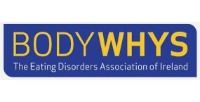Understanding Eating Disorders
Eating disorders are a range of psychological disorders where the person uses control of food and weight to cope with emotional distress. Left unchecked, they can be fatal and so are one of the most dangerous mental illnesses.
According to the Dept of Health, approximately 200,000 people in Ireland are affected by some form of eating disorder. These disorders affect physical, psychological and social function and impact negatively on the person's everyday life and relationships. They are a complex & serious mental health condition with implications for an individual’s physical & psychological health. And so, they are often very challenging for friends & family to understand.
It is possible to recover from an eating disorder with the right help & support.
Types of eating disorders
- Anorexia Nervosa
- Bulimia
- Binge Eating Disorder (BED)
- Other Specified Feeding or Eating Disorder (OSFED)
The Myths
A number of myths surround the issue of eating disorders which can make it difficult for an individual to seek help and, and in some cases, make them feel as though their problems are not valid or serious.
❌Myth 1: It's a lifestyle choice. Incorrect.
❌Myth 2: It's a diet and is all about food and weight. Also untrue.
❌Myth 3: It's just a phase, just a teenage or female issue. Again incorrect.
Firstly, there is a perception that eating disorders are a lifestyle choice, but this is not the case.
A person can become trapped in an eating disorder and may feel compelled to continue engaging in eating disorder behaviours as a coping mechanism for their emotional distress. This affects both how they think and how they feel. They may feel overwhelmed due to their eating disorder thought patterns and often experience negative emotions, including guilt and shame.
A second myth is that an eating disorder is a diet and is primarily about food or weight. Again, this is incorrect.
Eating disorders are generally linked to a person’s self-worth, self-esteem and how they see themselves. They relate to the underlying emotions a person feels unable to cope with and as a result, they turn to food and weight to manage their distress.
A third myth is that eating disorders are ‘just a phase’, a teenage issue, or a female issue.
Although eating disorders most commonly occur between the ages of 15-24 years, they are not specific to young people and are not something a person simply "grows out of". People outside of this age group are also affected by eating disorders, as are boys and men.
Recovery and support options
Unfortunately, these myths help fuel stigma and lack of understanding around eating disorders with clear consequences on how people with these disorders interact with their social support network and how they seek help.
However, it is possible to fully recover from an eating disorder. This is a very individual process that can take time and may involve a number of challenges and steps.
The first step towards recovery is acknowledging that there is a problem. In turn, creating an effective support network is also an important part of the recovery process. This may involve a mixture of professional help, support from friends & family members and contacting a specialist organisation such as Bodywhys.
Understandably, the prospect of asking for help is often incredibly difficult and frightening. For many people, the first step they take is to visit a general practitioner (GP). A GP may make a referral to a specialist for an assessment or further support options such as a psychiatrist, psychotherapist or dietitian.
It's also a good idea to connect with Bodywhys, the Eating Disorder Association of Ireland, who offer a range of support services in Ireland. This includes a telephone helpline, an email support service, online support groups and face to face support groups. All support services are facilitated by trained volunteers and offer a safe, non-judgemental space where someone can talk through what they are experiencing at their own pace. See below for more information.

Bodywhys, Ireland's Eating Disorders Association, provides confidential help, support & information services for people with eating disorders and for their families & friends. They provide Online Support Groups for Adults with eating disorders (age 19 years +), a Youth Connect Service (ages 13-18 years) and a family support programme (PILAR). Learn more about services here.
- Helpline: +353 1 2107906
- Email Support Service: alex@bodywhys.ie
- Email Office: info@bodywhys.ie
- Web: bodywhys.ie